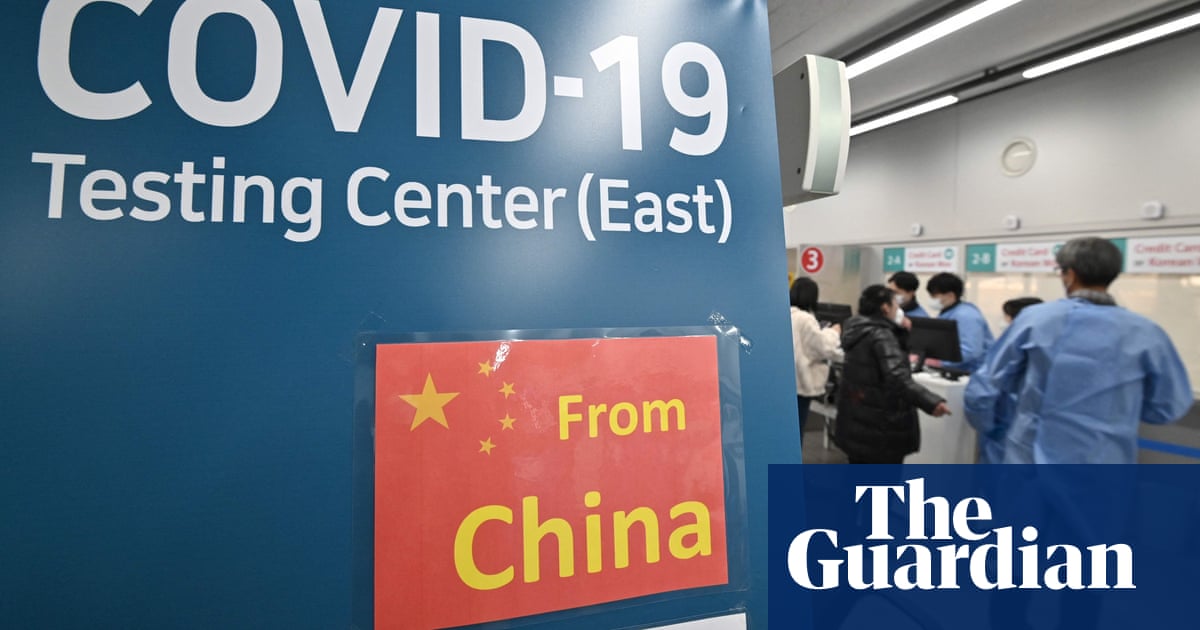
The US secretary of state has criticised HSBC for supporting China’s move to end Hong Kong’s autonomy, calling the bank’s endorsement a “corporate kowtow”.
Mike Pompeo said the US was ready to assist Britain with whatever it needed after Beijing reportedly threatened to punish HSBC and break its commitments to build nuclear power plants in the country if the UK did not allow the Chinese technology firm Huawei to build its 5G network.
“The United States stands with our allies and partners against the Chinese Communist party’s coercive bullying tactics,” Pompeo said in a statement.
He added that displays of support for Beijing received little in return, although the Chinese government “continues to use the bank’s business in China as political leverage against London”.
Pompeo said China’s treatment of HSBC was a “cautionary tale” and referred to the bank’s Asia Pacific chief executive, Peter Wong’s, decision to sign a petition supporting Beijing’s plans to enact new security legislation in Hong Kong. HSBC is based in London but makes the majority of its profits in Hong Kong and China.
HSBC also came in for criticism from one of Britain’s biggest investors, Aviva Investors, which hit out at the bank and its rival Standard Chartered for voicing their support for China’s new laws.
In a rare instance of public criticism, Aviva’s investment boss, David Cumming, said he was “uneasy” about the banks’ support “without knowing the details of the law or how it will operate in practice”, adding that corporate responsibility comes with making political statements.
“Consequently, we expect both companies to confirm that they will also speak out publicly if there are any future abuses of democratic freedoms connected to this law,” he said.
Aviva, which is among HSBC’s top 20 shareholders, confirmed it had spoken to senior representatives at HSBC about the issue.
HSBC’s chief executive and his counterpart at Standard Chartered – which is also London-based but is one of Hong Kong’s biggest banks – have already been censured in a letter from Labour frontbench MPs, the shadow chancellor, Anneliese Dodds, and the shadow foreign secretary, Lisa Nandy, and urged to revoke their support for Beijing’s new legislation.
The members of the shadow cabinet warned the banks in a letter that they could face a boycott and urged them to uphold Britain’s democratic values.
The US secretary of state has repeatedly criticised the behaviour of China and its Communist party, and its dealings with other countries, including how it trades with Australia.
Pompeo added that Australia and Denmark, among other countries, had recently faced pressure from Beijing and it showed why countries should not be too reliant economically on China.
The US has also long campaigned against Huawei, which Pompeo called “an extension of the Chinese Communist party’s surveillance state”, and has urged US allies not to include it in their mobile networks.
Beijing’s new national security laws have been condemned inside and outside of Hong Kong over fears that they could permanently undermine its autonomy under the “one country, two systems” framework and could limit freedoms for Hong Kong citizens.
The backlash against HSBC and Standard Chartered over their support for Beijing’s new legislation underlines the difficult balancing act faced by western companies that rely on the country for much of their revenue, at a time when there are growing geopolitical tensions between China, and the US and the UK.
The US has been joined by Australia and Canada in its criticism of China’s imposition of new laws on the former British colony. When Hong Kong was handed back to China in 1997, its autonomy was guaranteed by a Sino-British joint declaration.
Responding to a question in parliament over whether he would consider publishing a consultation paper on developing a long-term strategy for engaging with China, the prime minister called himself a “Sinophile”.
However, Boris Johnson said that the UK should raise its concerns with Beijing, whether over “the protection of our critical national infrastructure or indeed over what is happening in Hong Kong”.












